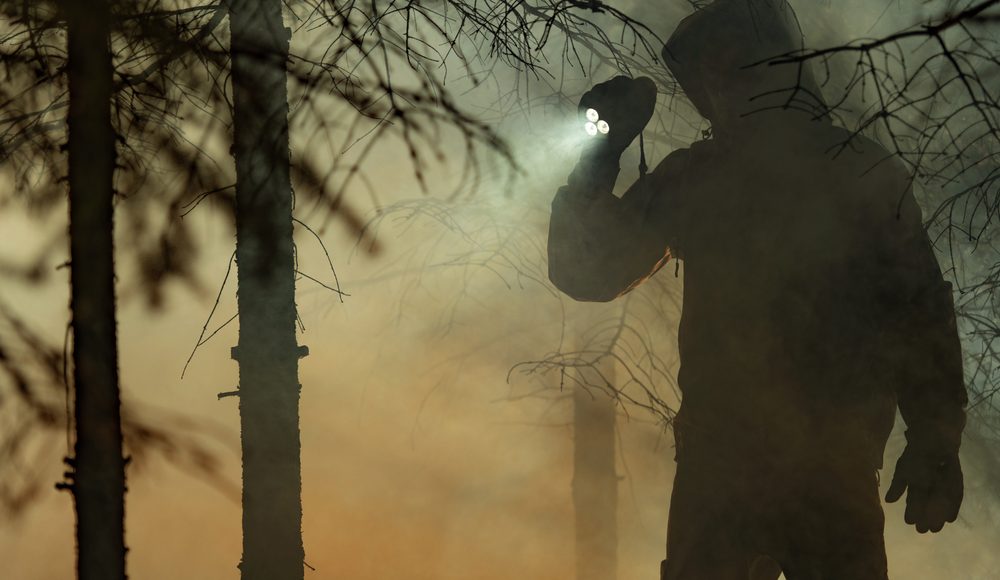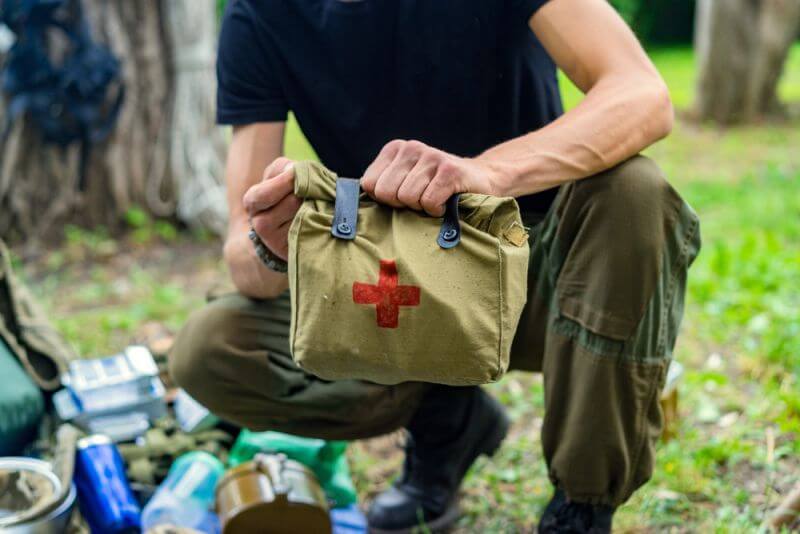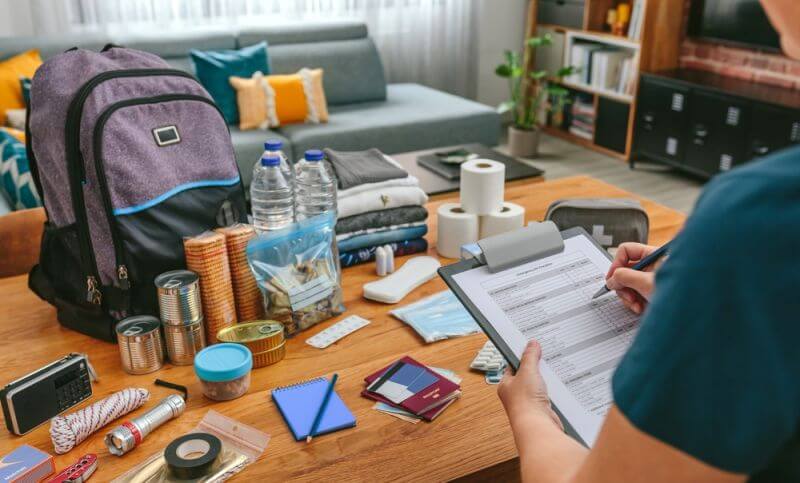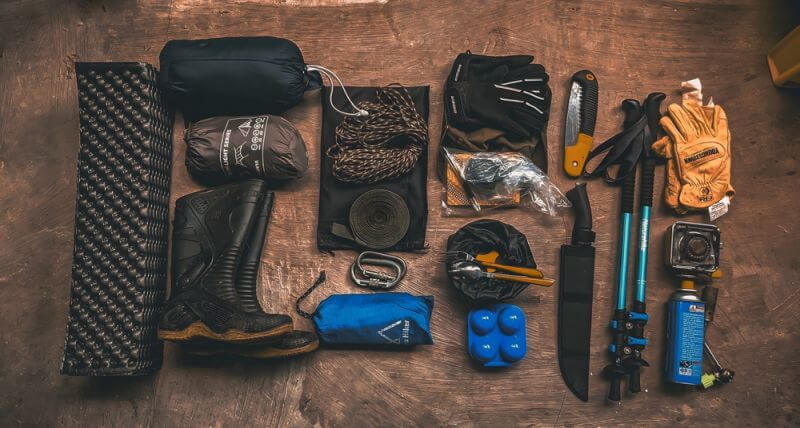The prepping and survival community has essentially become focused on surviving disasters, especially major disasters. There’s nothing wrong with studying those because plenty of them create serious survival situations for us. But those aren’t the only things we might find ourselves in need of surviving. Back when I got started in survival, there was a lot of interest in wilderness survival, not to bug out, but to survive should something happen to us in the wilderness.
Yet, the two go hand in hand, requiring many of the same skills and techniques. In addition, dealing with the disasters we have seen, especially the natural disasters, shows us how crucial basic survival skills are, the same type we would use in the wilderness. But they show us something more; there are times when there is a distinct need for someone to rescue us.
I’m a firm believer in self-sufficiency and recognize that we humans are social creatures who function best as part of a larger society. While it is good to do as much as possible on our own, there are always things we can’t do for ourselves. We either need someone else to do them for us, or we need to do without. Sometimes, doing without can be fatal.
Such can be the case with being rescued, whether when we are lost in the wilderness or trying to survive a flood.
Self-Rescue vs. Being Rescued
Any situation we find ourselves in presents two options, rescuing ourselves or being rescued by others. This includes cases where our “rescue” is to bug in and live off of our preps. That, by definition, is a self-rescue and why we all work to build a stockpile and prepare our home for surviving a disaster.
But no matter how well we prepare our homes for bugging in, there can still be situations where that’s not the safest place to be. It would have made no sense at all for preppers living in Paradise, California, to bug-in when the Camp Fire burned down every building in their town in November of 2018. Likewise, the preppers of Southeast Houston found that their food stockpiles and other preps weren’t going to help them out when Hurricane Harvey flooded their city in August of 2017.
That hurricane gives us a great example of self-rescue versus being rescued. The Cajun Navy immediately mobilized when they realized that thousands of people would be trapped in their homes by the flooding. While government agencies helped with the rescue operations, mainly the Cajun Navy did the work.
As I watched that event unfold, I realized that I had no way to self-rescue from a flood, even though I was living in a hurricane zone. So I did something about it. No, I didn’t go out and buy a fishing boat; I purchased an inflatable boat for less than $200. That would be enough for my wife and me to get to high ground with our two dogs if it were to become necessary.
By and large, self-rescue is better than waiting around for someone to rescue you. But there are a lot of potential exceptions to that.
There are places in this country where you could walk for days without reaching civilization. Some of those places are in arid zones, where you would probably die of dehydration long before you could get the next water source. In addition to those sorts of risks, there is also the problem of trying to self-rescue when you are injured and can’t walkout.
Making the Decision
Whenever we’re faced with a situation where we need rescue, whether at home or on the road, we first need to take stock of our situation. That includes many things, especially looking at our physical condition, location, resources available to us, and how far we have to go to reach help or safety.
If we have the resources needed to effect a self-rescue, then that’s the way to go. As preppers, we strive for self-sufficiency. Even so, we shouldn’t allow that to cause us to make rash or foolish decisions. If it is unlikely that we can get ourselves to safety, then it only makes sense to await rescue.
Rescue Starts Early
One of the keys to any rescue operation is getting an early start. That’s why the Cajun Navy rushed to Houston while Hurricane Harvey was still plastering the city with rain. They had no problem finding the people who needed rescue because they were trapped in their homes. But that isn’t always the situation and certainly won’t be if your case happens when you are away from home.
This is why it is essential always to make sure that a friend knows where you are going, your route, and when you expect to come back whenever you leave home, especially if you go out of town. The sooner that person realizes that you didn’t make it back on time and reports it, the sooner search and rescue can be notified to start looking for you.
If you’re taking a lengthy trip, keep in touch with that same friend, letting them know about your progress and any changes to your route and itinerary. That’s not all that unusual to do anyway, and by doing so, you provide valuable information for them to pass on to the rescue team, narrowing down the area in which you might be. If you tell them you’re driving from New York to California and expect to get there in two weeks, there’s a whole country in-between. But if you check in every night, you narrow down the search area considerably.
Of course, the person you communicate with needs to understand that their job is to seek help if you don’t check-in. You need to know how often you’ll check-in and how long they’ll wait to contact anyone if you don’t. Striking a balance between calling quickly and calling too soon can be tricky. If you check in late and they’ve already called, it would be a waste of many expensive resources, which you might be billed for.
Signaling Rescuers
Once you’ve determined that you need rescue, your two main concerns are surviving and making sure rescuers can find you. Both are equally important and may interfere with each other.
Your first resource for signaling rescuers is your cell phone, assuming you have a signal. Even if you don’t have enough of a signal for calling, there might still be a chance for you to get a text message out. Text messages don’t require as much bandwidth as voice calls, so they can be used to get out a call for help, even when you can’t get anyone to answer.
The other thing that’s good to have with you is a two-way radio of some sort, like a CB band walkie-talkie or business-band radio. It doesn’t matter if you have anyone in your group to talk to with that radio; other people own radios operating on the same frequencies, like search and rescue. Having that radio gives you one more way of calling for help and maybe even giving helpful information to the search team looking for you.
Visibility
Any rescue team looking for you is going to have to see you find you. This is one of those places where survival requirements might work against rescue operations. Bad weather might dictate the need to stay in a shelter. But if you’re hiding away in a natural cave or one made from materials found in the wild, they could walk right by you without even knowing you’re there.
The same sort of problem could exist if you run off the road in your car in the wintertime. That’s a survival situation where you do need to stay in the car for your protection. But at the same time, you need people to see that you are there. That can be problematic if the car has slid down into a ditch that isn’t visible from the road or where snow has piled up on the car, hiding it.
In any such case, rescuers will be looking specifically for you, or at least for a human body. But that doesn’t mean that they won’t see other things. Their senses will be on high alert, so anything that stands out will be investigated. Here are some alternate things you can do:
- Reflectors – The rescue or survival blankets that we all seem to carry work well as a signaling devices. Sunlight reflecting off of the shiny aluminized surface can be seen from a long-distance away.
- Bright Colors – There are few brightly colored things in nature, other than birds. A brightly colored garment or tent is just about as good as a reflector, even though it might not be visible from as great a distance.
- Smoke – Building a smoky fire provides a signal that can be seen from a long-distance away.
- Create Disruption – If you don’t have anything that makes an excellent visual signal, you can attract attention by disrupting what’s already there. Searchers will be familiar with the area and how things usually look in that area. While they may not remember every rock and tree, they will have a general idea of the terrain. Uprooting a particular type of plant and making a pile of them in the middle of a clearing would look out of place, causing them to investigate.
Communicating with Rescuers
In addition to visual signals, you should use audible signaling to call out to rescuers constantly. Yelling all day long can be hard on the vocal cords, but a whistle works well. The international call for the help of three blasts on a whistle still works, even though many people aren’t aware of it. But you can be sure that search and rescue personnel will be trained in it. The complete code consists of:
- One blast – Where are you or response to other whistle signals
- Two explosions – Used to signal a halt during a search
- Three shots – I need help!
- Four explosions – Come to me.
I’d recommend buying an actual rescue and survival whistle, rather than either a sports whistle or one of the small round ones to go on a key chain. Survival whistles have multiple chambers, making it like you are blowing numerous whistles at once. This dramatically increases the volume of the whistle, allowing it to be heard from a much greater distance.
Another Great Help
Rescue workers are now using a relatively new technology called RECCO to find victims. The two-part system consists of a detector used by rescue workers and a reflector worn on the clothing. This system allows search and rescue teams to locate a person from about 80 meters away or from 100 meters away from a detector slung below a helicopter.
There are about 150 brands that now come with RECCO reflectors sewn onto them. In addition, RECCO reflectors are available, which can be attached to helmets, backpacks, and articles of clothing. The reflector does not require any batteries and does not wear out.
If You Leave Camp
One of the essential factors in getting rescued is staying put. Search and rescue teams work in an organized manner, “clearing” areas that they have searched, with the expectation that they won’t have to go back to those areas. But if you leave your camp, moving to a place that is already cleared, they will only find an empty camp. They won’t know if it is yours, and they won’t say that you are in that cleared area.
But what if you have to move for survival? Then you need to ensure that you leave trail markers to show where you have gone. Suppose there is any way to leave a note, letting them know that they have found your camp, that would be even better. That will allow them to abandon searching in other areas and trail you to where you’ve gone.










Terry | October 26, 2021
|
If you are relying on your cell phone for emergency assistance, change your voicemail before your battery runs out. Tell where you are, what happened, any injuries, who is with you, etc. Your voice mail can be reached anywhere even if your phone dies.
Travelin On | October 26, 2021
|
Wonderful article and wonderful comment added Terry. Changing the voice mail message on the cell phone is not one I would have thought of.
Sylvia | October 27, 2021
|
Nor would I have thought of changing voice mail. This should be a widespread, standard survival rule. Thank you, Terry.